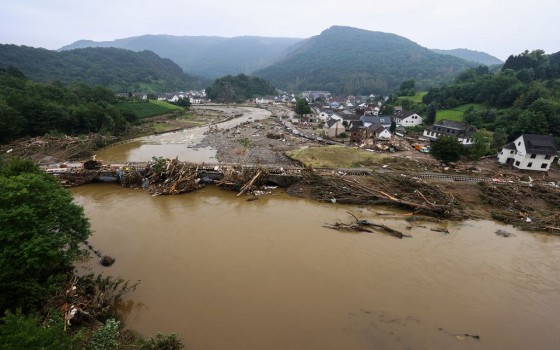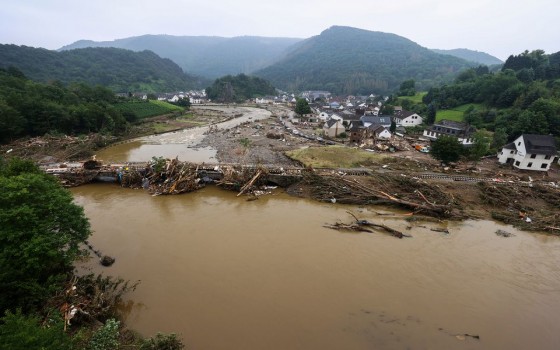
Beijing's suspension of cooperation with Washington is an additional obstacle to confronting climate change

- Europe and Arabs
- Saturday , 6 August 2022 16:58 PM GMT
China has suspended its cooperation with the United States in the field of climate change, in a move that experts hope will be temporary between the two most emitting countries, to avoid its negative repercussions on the whole world. The move came just months after the two countries announced an unexpected agreement to boost cooperation in the field of climate during the COP26 conference, which was held in Glasgow last year. However, US House Speaker Nancy Pelosi's visit to Taiwan this week angered China, which considers the autonomous island part of its territory, and prompted it to respond through measures that included suspending cooperation with Washington in several vital areas. The suspension of climate cooperation between the two countries is "of course worrisome and raises concerns," Alden Meyer, researcher at E3G, told AFP. He added, "It is impossible to deal with the climate emergency if the largest economy and the second largest economy in the world, and the largest emitter and the second largest emitter in the world, do not take any step (...) and it is always desirable that they cooperate in this." The spokesman for the Secretary-General of the United Nations stressed Friday that the cooperation of the two countries is essential in "all pressing problems" at the global level. The suspension of cooperation raises questions about its repercussions on the United Nations climate conference "COP27", which is scheduled to be hosted by Egypt in November. "What are the conditions for re-launching the dialogue? Are these conditions climatic or geopolitical?" Li Zhou of the environmental organization Greenpeace asked via his Twitter account. For his part, Meyer asks whether the Chinese action is "a tactical or a longer-term strategic move? (...) Does China say that cooperation is impossible as long as tensions between China and the United States remain?" - 'An absolute disaster' - The global temperature has increased at a rate of about 1.2 degrees Celsius compared to the pre-industrial era, which led to a doubling of heat waves, droughts, floods and storms in the world. In the event that countries do not adhere to their climate commitments, especially in terms of greenhouse gas emissions, the Earth's temperature could rise by 2.8 degrees by the year 2100, according to estimates by UN climate experts. Even before the current tension between China and the United States, international commitments were less than required due to factors including the economic crises caused by Covid-19, and the Russian invasion of Ukraine that caused a global energy crisis that prompted the reactivation of coal-fired electric power plants. Francois Gemin, one of the authors of the IPCC report, sees the Chinese move as "an absolute disaster for the climate (...) comparable to the US withdrawal from the Paris climate agreement" under former President Donald Trump. And his successor, Joe Biden, returned in 2021 the United States to the agreement aimed at reducing the levels of global warming by the end of the century below two degrees Celsius, and seeking to keep this rise not exceeding the 1.5 degree threshold. Experts note that the US withdrawal was accompanied by a decline in domestic and foreign climate policy commitments, but they stress that the Chinese move is different. David Vasco, director of the Climate Initiative at the International Resources Institute, explains that the Chinese announcement "is certainly not a withdrawal from the global arena on climate issues or a refusal to act" on it. This view is shared by the founder of "Power Shift Africa" Center for Energy Research, Mohamed Addo, as "distance diplomacy does not mean that China is backing away from its commitments", especially since Beijing "is far ahead of Washington in terms of action on climate change" in many areas. Biden has pledged to reduce US emissions by 2030, to between 50 and 52 percent of their 2005 levels, and achieve carbon neutrality by 2050. However, his ambitions in this area are affected by the failure to advance clean energy projects and climate initiatives in Congress, although some progress has been made in this area in recent days.
AFP











No Comments Found